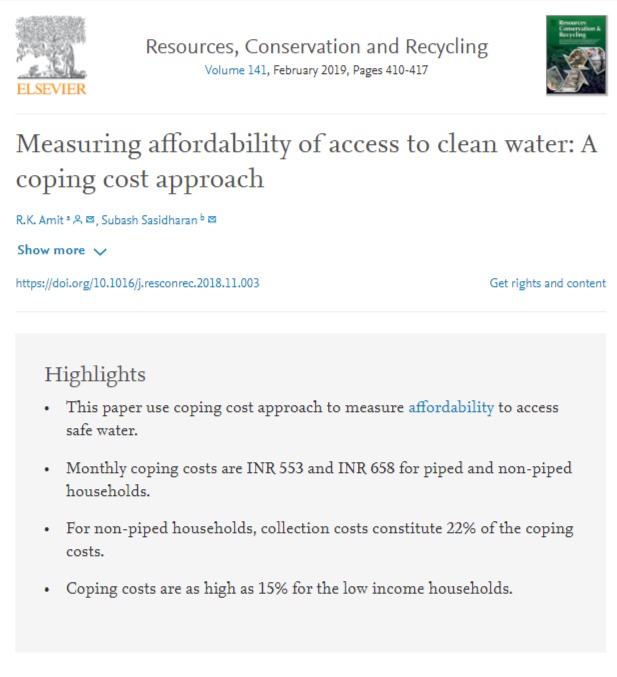
Sustainable Development Goal 6.1 is “to achieve universal and equitable access to safe and affordable drinking water for all”. To measure affordability of accessing clean water, coping cost approach has been adopted, and this paper contributes to the burgeoning empirical literature on measuring affordability. The objective of this paper is to estimate coping costs related to the erratic, unsafe, and inadequate water supply in the metropolitan area of Chennai, India. Based on the data collected from 423 households, we find that households in Chennai city resort to five main types of coping behaviors: collecting, pumping, treating, storing, and purchasing. We employ the multiple regression with robust errors, to estimate the determinants of the coping costs. We obtain the mean coping costs as INR (Indian Rupee) 553, and INR 658 per month for piped and non-piped households in this sample. For non-piped households, collection costs (time costs in traveling and queuing for collecting water) constitute 22% of the coping costs, while collection costs for piped households are less 2% of the coping costs. One interesting finding is the variation of coping costs with household income—these costs are roughly 1% of income for the high income households to as high as 15% for the low income households. The results outline the need of policy intervention to enhance affordability.